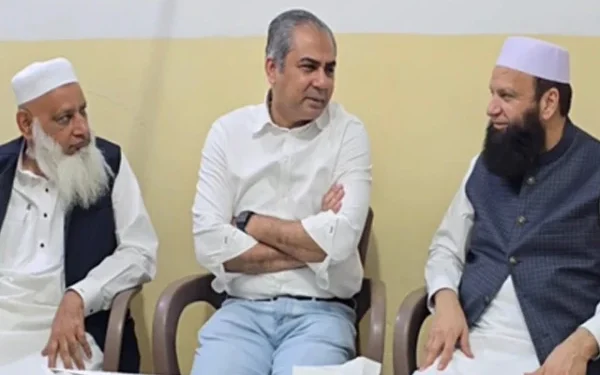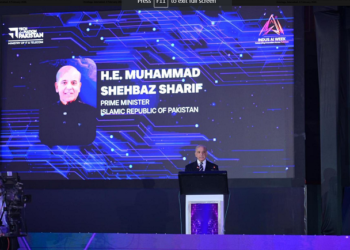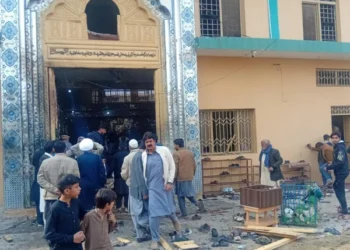Introduction: A Step Towards Religious Harmony and Facilitation
In a significant move highlighting the government’s commitment to religious freedom and facilitation of international religious events, Federal Interior Minister Mohsin Naqvi paid an important visit to the Tablighi Markaz in Raiwind, Lahore. The visit underscored the government’s dedication to ensuring that the upcoming global Tablighi Ijtima in November runs smoothly and that all international participants are provided with hassle-free entry into Pakistan.
The Interior Minister’s assurance to resolve visa-related challenges faced by foreign delegations has been widely welcomed, particularly by the leadership of the Tablighi Jamaat and the millions of Muslims who look forward to this annual religious congregation.
The Importance of the Tablighi Ijtima
The Tablighi Ijtima is regarded as one of the largest religious congregations in the Muslim world, second only to the annual Hajj pilgrimage in Saudi Arabia. Every year, hundreds of thousands of Muslims from across the globe travel to Raiwind, Pakistan, to participate in the Ijtima.
The event serves as a platform for Muslims to strengthen their spiritual connection, engage in collective prayers, and commit themselves to the mission of spreading peace, humility, and the true message of Islam. Delegates from countries across Asia, Africa, the Middle East, Europe, and North America participate in this gathering, making it a truly international event.
Given its scale and spiritual significance, the smooth facilitation of international guests is considered crucial for Pakistan’s reputation as a host nation.
Meeting Between the Interior Minister and Tablighi Jamaat Leaders
During his visit, Interior Minister Mohsin Naqvi held a detailed meeting with the senior leadership of the Tablighi Jamaat at the Raiwind Markaz. The meeting was attended by prominent religious scholars and organizational heads, including:
- Maulana Muhammad Ahmed Butler
- Maulana Obaidullah Khurshid
- Dr. Saleem
- Anwar Ghani
- Mian Ahsan
- Dr. Nadeem Ashraf
- Maulana Aamir Ahsan
- Maulana Amjad Farooq
- Shabbir Ahmed Usmani
- Mufti Irfan
- Brigadier (retd) Mosaddeq
The leaders briefed the Interior Minister on the extensive preparations being made for the upcoming Ijtima, including logistical arrangements, accommodation facilities, food distribution, healthcare provision, and security measures.
Visa Issues: The Key Challenge for Foreign Delegates
One of the main issues raised by the Tablighi Jamaat leadership was the visa difficulties faced by international participants. In previous years, several delegations faced bureaucratic hurdles, long delays, or outright denials of entry visas, which hindered their participation in the global Ijtima.
Interior Minister Mohsin Naqvi assured the leadership that the government was fully committed to resolving these issues. He declared that:
“Wherever there is a visa issue, it will be resolved on a priority basis. The delegations coming to participate in the Tablighi Ijtima are our esteemed guests, and facilities will be created for them at every level.”
This statement has been widely appreciated, as it demonstrates the government’s recognition of the global religious significance of the Ijtima and its commitment to uphold Pakistan’s tradition of hospitality.
Government’s Support for Religious Gatherings
Mohsin Naqvi further emphasized that the government views the Tablighi Ijtima not only as a religious event but also as an opportunity to promote Pakistan’s image as a peaceful, welcoming, and religiously tolerant country. He assured the Tablighi Jamaat that all relevant state institutions — including the Interior Ministry, Immigration Department, and law enforcement agencies — would be directed to extend maximum cooperation.
The Interior Minister also revealed that he regularly participates in the annual Ijtima, and pledged to attend this year’s gathering as well, reinforcing his personal connection and commitment to the event.
The Role and Mission of Tablighi Jamaat
The Tablighi Jamaat is one of the largest Islamic missionary movements in the world, founded in 1926 in India by Maulana Muhammad Ilyas Kandhlawi. Its mission is centered on reviving Islamic faith, encouraging Muslims to adopt piety, simplicity, and devotion, and inviting others to the path of Islam through peaceful preaching.
The Raiwind Markaz in Pakistan is considered one of the central hubs of this movement. The annual Ijtima is the pinnacle of their efforts, attracting hundreds of thousands of people for spiritual training, Dawah missions, and religious lectures.
During the meeting, Maulana Muhammad Ahmed Butler reminded everyone of the ultimate purpose of human life, stating:
“Everyone has to return to Allah Almighty. We should make the religion of Islam and service to humanity our motto. There is goodness and success only in following the path shown by Allah Almighty.”
This spiritual message aligned with the broader purpose of the Ijtima, which seeks to encourage participants to reform themselves spiritually and morally before returning to their communities.
Preparations for the Global Ijtima 2025
With the annual congregation only a few months away, preparations are already in full swing. The organizational committees are focusing on:
- Accommodation: Thousands of temporary tents and facilities are being set up to host the massive influx of participants.
- Security: Law enforcement agencies are coordinating with local volunteers to ensure the safety of attendees.
- Health Facilities: Mobile clinics, ambulances, and first-aid stations are being arranged to provide medical assistance.
- Transport Arrangements: Special routes and shuttle services are being planned for smooth entry and exit of participants.
- Food Supply: Community kitchens and volunteer-run food distribution systems are being expanded to serve the large crowds.
The Interior Minister’s assurance of government support has boosted confidence that this year’s Ijtima will be better organized than ever before.
Religious Tourism and Pakistan’s Global Image
Beyond its religious significance, the Ijtima also highlights Pakistan’s potential for religious tourism. Each year, the event attracts tens of thousands of foreign visitors, who experience not only the spiritual environment of Raiwind but also the hospitality, culture, and traditions of Pakistan.
By ensuring hassle-free visas and smooth arrangements, the government can use the Ijtima as a soft power tool to project Pakistan’s positive image on the global stage.
Conclusion: A Positive Step Towards Facilitation and Unity
Interior Minister Mohsin Naqvi’s visit to the Raiwind Markaz has been viewed as a positive and reassuring step for both the Tablighi Jamaat and the international Muslim community. His pledge to resolve visa issues, provide maximum facilities, and personally participate in the gathering reflects the government’s commitment to promoting religious harmony, inclusivity, and hospitality.
As preparations for the November Ijtima continue, this assurance has strengthened hopes that the event will proceed smoothly, attracting record participation and further enhancing Pakistan’s role as a center of Islamic revival and spiritual leadership.

























